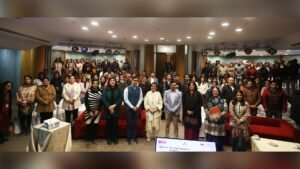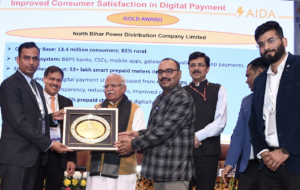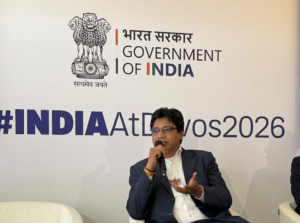Bengaluru: For the first time in its history, India is hosting the prestigious 3GPP Radio Access Network (RAN) Working Group meetings—RAN1 through RAN5—in Whitefield, Bengaluru, marking a major milestone in the global telecom landscape. These meetings, held from August 25 to 29, are focused on shaping the future of mobile communications, including the development of 6G standards under Release 20 and the finalization of Release 19, which will enhance 5G Advanced capabilities.
The event is organized by the Telecommunications Standards Development Society, India (TSDSI), with full backing from the Department of Telecommunications (DoT), Ministry of Communications. The DoT has provided both institutional and financial support, underscoring the Indian government’s strategic commitment to influencing next-generation telecom technologies. A delegation from the DoT is actively participating, reflecting India’s deep engagement in the global 6G roadmap.
TSDSI, India’s official Standards Development Organization, is one of the seven core partners of 3GPP, the international body responsible for defining mobile communication standards. India’s involvement in these discussions highlights its growing role in shaping the future of global telecom infrastructure.
The Bengaluru meetings have drawn an unprecedented turnout, with over 1,500 delegates from more than 50 countries, including representatives from leading telecom firms, research institutions, and technical experts. This is the highest attendance ever recorded at a 3GPP working group session, emphasizing the importance of the topics being addressed and the rising global interest in 6G development.
Hosting these meetings in India offers a unique opportunity for local stakeholders, researchers, companies and academic institutions to engage directly with global experts. It removes barriers to participation and allows Indian organizations to contribute meaningfully to international standards without the need for overseas travel.
Bringing 3GPP deliberations to India marks a shift in the global standard-setting landscape, where emerging technology leaders like India are taking on more influential roles. The event is expected to foster stronger collaboration between industry and academia, stimulate innovation, and reinforce India’s position as a key player in the global telecom standards ecosystem.









